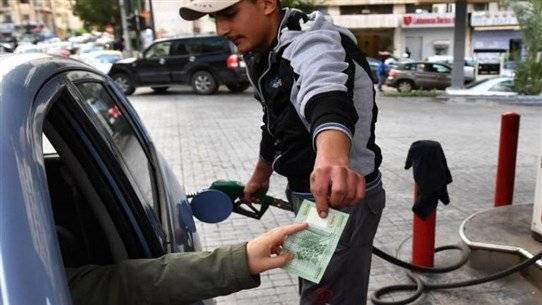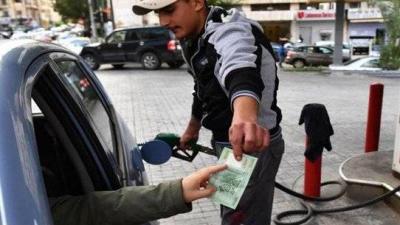Towards dollarization we go, the last straw in front of the citizen, and the creation of crises, the closure of stations, and the bread shortages are nothing but a coded message to the government: “No dollarization means no gasoline or bread.” This is what citizens have begun to feel on the ground, as their unvoiced sentiment echoes: “Dollarize the bread and gasoline, but let them be available.” This is the intention of the state: to subjugate the citizen into compliance without any reaction.
Practically, if gasoline prices rise, the prices of all goods linked to it will witness alarming increases that the citizen cannot easily absorb. It was supposed that the stations in Nabatieh would open their doors after the economic monitors' intervention on Saturday; however, they exemplified the saying “When the cat's away, the mice will play,” leading to widespread anxiety among citizens who recalled the scenes of queues, humiliation, and closures.
As soon as talk of “dollarization of gasoline and fuels” spread, the stations in Nabatieh, Marjeyoun, and Bint Jbeil raised their hoses, and even the newly opened stations closed down on the basis of “save your stock for dollarization day,” leaving citizens unable to find a few liters of gasoline to fill their empty car tanks. While the era of “filling up” is long past as the price of a tank of gasoline approaches 700,000 Lebanese pounds, it is still essential for commuting to work. Citizens typically fill their tanks for up to 500,000 pounds at most, due to their weakened purchasing power and high fuel prices that have surpassed the minimum wage.
Despite economic interventions, the stations kept their hoses raised on the pretext of “there’s no gasoline,” leaving the citizens in confusion: “Are we in a crisis, or is it a manufactured crisis?” In either case, the crisis persists, despite all reassurances from the Minister of Energy and even the fuel distributors. The closure of the stations reflects only one reality: “there is a crisis.”
The streets of Nabatieh and its villages appeared deserted, as if we were in a war zone, with only motorcycles remaining on the road. Many have turned to them as a more economical alternative to cars, albeit to a lesser extent. However, the question arises: why are the stations closed while a large stock exists inside them? Citizens question: “Where is the Ministry of Economy about what’s happening in the South?”
It is surprising that rounds of economic monitoring have proven ineffective, despite their statement confirming the reopening of closed stations; the reality remains different— no stations are open, and no one is in the mood for sympathy. Information suggests an adequate supply at all stations, especially since gasoline consumption has dropped by around 80%. The citizens barely fill their tanks with 500,000 pounds, which equates to only 10 liters, and most do not move except for one day a week.
As if it weren't enough for Ibrahim to search for a loaf of bread in vain, he finds himself having to look for a few liters of gasoline that are not available. According to Ibrahim, “The crisis is significant only in the South because we have more corrupt traders than politicians themselves,” he further states: “How did the stock finish so quickly? Do stations run out of gasoline like that?”
Nabatieh and its villages are living through the worst days of their lives, facing one crisis after another—from water crises, which annoy citizens with tanker invoices rising to 600,000 pounds, to bread going into the black market, with each shop pricing it based on its own profits, reaching a crisis with gasoline headed towards dollarization just like bread. At this rate, the region is heading towards a trial run of a significant collapse, and certainly, all customs and traditions will change. As Yusuf asserts, we are nearing the time of returning to donkeys and hay and all traditional means. He adds: “Now, my salary can barely cover a tank and a half of gasoline, and we are left with two options: sit at home or spend our salary on gasoline, and both solutions are bitter.”
Abu Yusuf struggles with his crises; as a worker in a school, he finds himself unable to reach his job since the distance between his home and work exceeds 17 kilometers. The cost per kilometer is 6,000 pounds, which means he needs 100,000 pounds of gasoline daily, adding up to 300,000 every three days, while he only earns two million pounds. The irony is that “they cut off gasoline just to raise its price,” and what pains him most is his inability to go to work while the state seems indifferent.
It appears that the season of crises is returning; with every critical moment in the country, crises emerge as harsh pressure tactics to improve terms for the leaders, even at the expense of a citizen who has lost everything and is left with only the phrase “God help us.”




